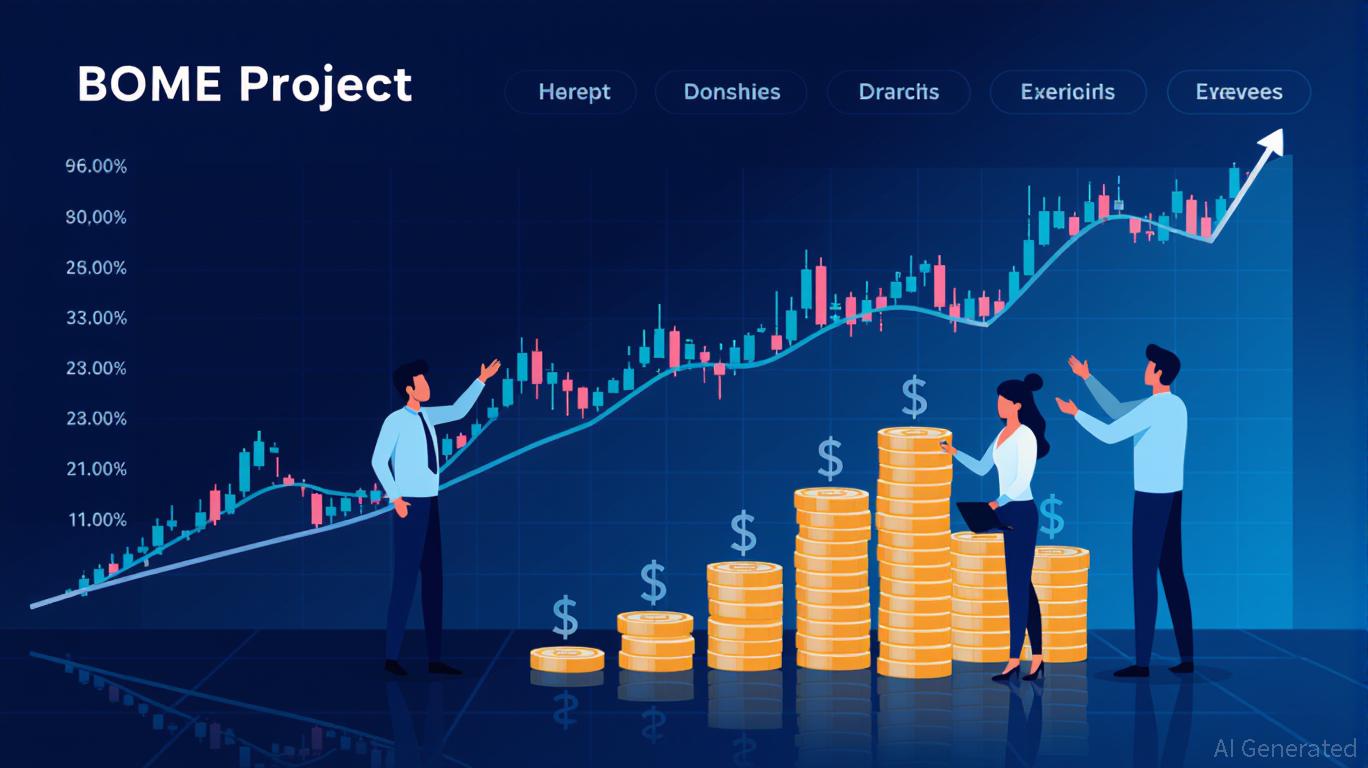Nigeria’s Digital Boom Meets Strict Data Guardrails
- Nigeria’s internet data consumption hit 1.13 million terabytes in July 2025, driven by 4G/5G expansion and rising online activity. - Mobile teledensity reached 78.11% with 169 million subscriptions, but a 50% tariff hike reduced total users while boosting per-user data usage. - NDPC intensified data protection enforcement, fining firms like Multichoice and Fidelity Bank up to N766.2 million for compliance breaches. - Financial and tech sectors face pressure to adopt technical measures like encryption ami
Nigeria’s digital landscape is undergoing a period of rapid transformation, marked by record-breaking internet usage, increasing data consumption, and a regulatory environment that is tightening in response to the growing demand for robust data protection. In July 2025, the country recorded a total of 1,131,255.90 terabytes of internet data consumed across mobile and fixed networks, up from 1,044,073.08 terabytes in June [4]. This growth is driven by the expansion of 4G and 5G networks by major mobile operators such as MTN, Airtel, Glo, and T2, which have significantly improved internet accessibility and speed [4]. Active mobile subscriptions in Nigeria reached over 169 million by July 2025, translating to a teledensity of about 78.11% [4].
The surge in data usage is attributed to a shift toward high-speed internet and an increasing reliance on online platforms for work, education, entertainment, and commerce. Video streaming platforms like Netflix , YouTube, and TikTok have become dominant in Nigeria’s digital ecosystem, with short-form video content particularly popular among younger users [4]. This has led to a sharp rise in per-user data consumption, with MTN users averaging 14GB of data per month and Airtel users averaging 10.7GB per month for 4G connections [5]. Despite a decline in overall internet subscriptions due to a 50% tariff hike, those who remain active are consuming significantly more data, indicating a growing digital dependency [5].
However, the increase in data usage is accompanied by concerns over network quality and cybersecurity. As more Nigerians access sensitive information and transact online, the risk of cyber threats such as phishing and data breaches is rising. This has prompted calls for stronger measures to protect personal data, especially as Nigeria’s data protection laws are being more strictly enforced. The Nigeria Data Protection Commission (NDPC) has intensified its oversight, issuing compliance notices to banks, insurance firms, pension companies, gaming operators, and insurance brokers suspected of violating the Nigeria Data Protection Act, 2023 [7]. These sectors are now under pressure to demonstrate compliance with data protection requirements, including the implementation of technical and organizational measures (TOMs), such as encryption, access controls, and data protection policies [6].
The NDPC’s actions signal a broader commitment to building trust in Nigeria’s digital ecosystem. The commission has already penalized companies like Multichoice Nigeria and Fidelity Bank for violations of data protection laws, with fines reaching as high as N766.2 million [7]. These penalties reflect the NDPC’s determination to hold organizations accountable for the responsible handling of personal data. The commission has emphasized that its efforts align with Nigeria’s goal of integrating into global digital markets through responsible data governance [7].
The evolving regulatory landscape is expected to have a significant impact on Nigeria’s financial and technology sectors. Financial institutions and gaming platforms, which manage large volumes of personal data, must now prioritize robust data governance frameworks or face severe financial and reputational consequences. The NDPC’s enforcement actions highlight the importance of TOMs in safeguarding data and maintaining consumer trust. As Nigeria’s digital economy continues to expand, the need for secure and transparent data handling practices will become increasingly critical.
With a teledensity of 78.11%, Nigeria’s growing internet penetration has positioned the country as a key player in Africa’s digital transformation. However, this momentum must be matched with regulatory clarity and infrastructure development to ensure equitable access and cybersecurity. The NDPC’s ongoing efforts to enforce data protection standards, alongside the telecom sector’s push to expand 5G coverage, will be pivotal in shaping Nigeria’s digital future. As businesses adapt to these changes, the emphasis on accountability, transparency, and compliance will remain central to the country’s digital evolution.
Source: [1] UNICEF: RUTF and Therapeutic Milk Pipeline Update for Key Humanitarian Contexts – 30th July 2025 [2] [3] [4] Technext24: Nigeria's internet usage soars to a record 1.1 million terabytes [5] The Guardian Nigeria: Tariff hike cuts 2.4m off Internet amid soaring data consumption [6] Mondaq: Technical And Organizational Measures- A Primer [7] BusinessDay: Nigeria's Data Protection push signals tougher rules for finance, tech

Disclaimer: The content of this article solely reflects the author's opinion and does not represent the platform in any capacity. This article is not intended to serve as a reference for making investment decisions.
You may also like
Book of Meme (BOME): A High-Potential Meme Coin with a Strategic Presale and ROI Catalysts
- BOME's 2024 presale and community fund strategy drove a 36,000% price surge, showcasing meme-driven crypto ROI potential. - Despite an 85% retracement to $0.0021, analysts highlight BOME's Arweave/IPFS integration and Bitcoin inscriptions as future growth catalysts. - However, 50% token concentration in early investors and lack of governance pose dumping risks, categorizing BOME as high-risk speculative asset.

Celebrity-Backed Memecoins: A Systemic Threat to Retail Investors
- Celebrity-backed memecoins prioritize insider gains over public value, creating volatile markets with liquidity traps and artificial price collapses. - Tokens like YZY (70-94% insider allocation) and TRUMP (80% insider control) exemplify centralized tokenomics enabling rapid price manipulation and wealth concentration. - Regulatory ambiguity allows enforcement gaps, as seen in Kim Kardashian's $1.26M fine for undisclosed promotion, while self-paired liquidity pools facilitate insider exploitation. - Acad

Aave's Horizon: Strategic Infrastructure for Capital Efficiency in the $26B+ RWA Market
- Aave Horizon bridges TradFi and DeFi by enabling institutions to borrow stablecoins against tokenized RWAs like U.S. Treasuries and real estate. - The hybrid model combines permissioned compliance checks with permissionless lending, addressing institutional barriers like legal risk and operational complexity. - Partnerships with Centrifuge and Superstate expand access to $1B+ in tokenized assets, while Chainlink oracles ensure real-time NAV tracking and risk management. - This infrastructure could unlock

Silver's Silent Revolution: Contrarian Signals in the Shares Silver Trust (SLV) Suggest a Strategic Entry Point for 2025
- The Shares Silver Trust (SLV) emerges as a strategic entry point for contrarian investors in 2025, driven by undervalued silver fundamentals and structural supply-demand imbalances. - Weakening U.S. dollar, industrial demand surges (10% annual solar-driven growth), and a record 87.9 gold-silver ratio signal potential for a sharp silver rebound. - Oversold technical indicators (RSI 24.84, golden cross) and $3.61B 3-month inflows highlight shifting investor sentiment toward silver’s dual role as industrial
